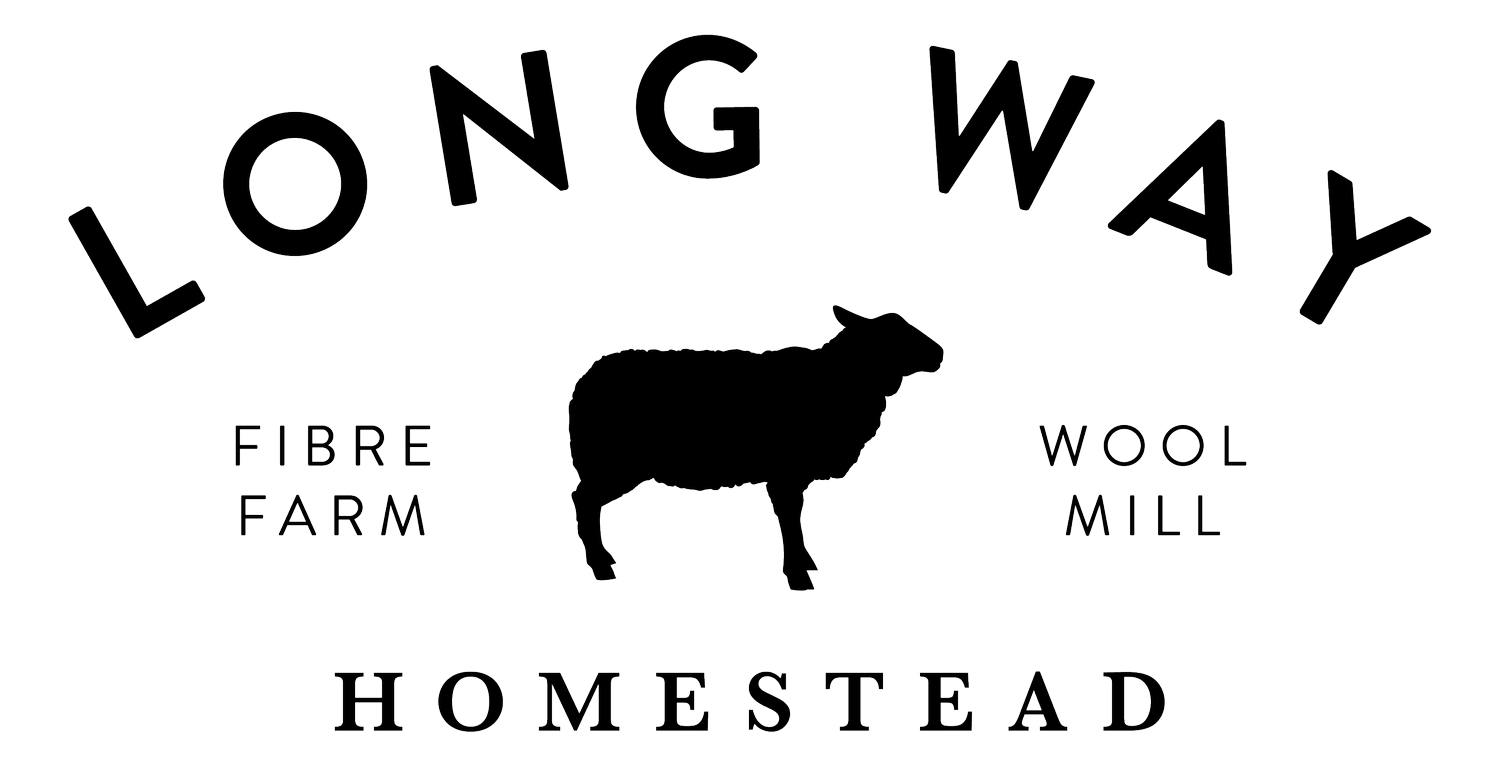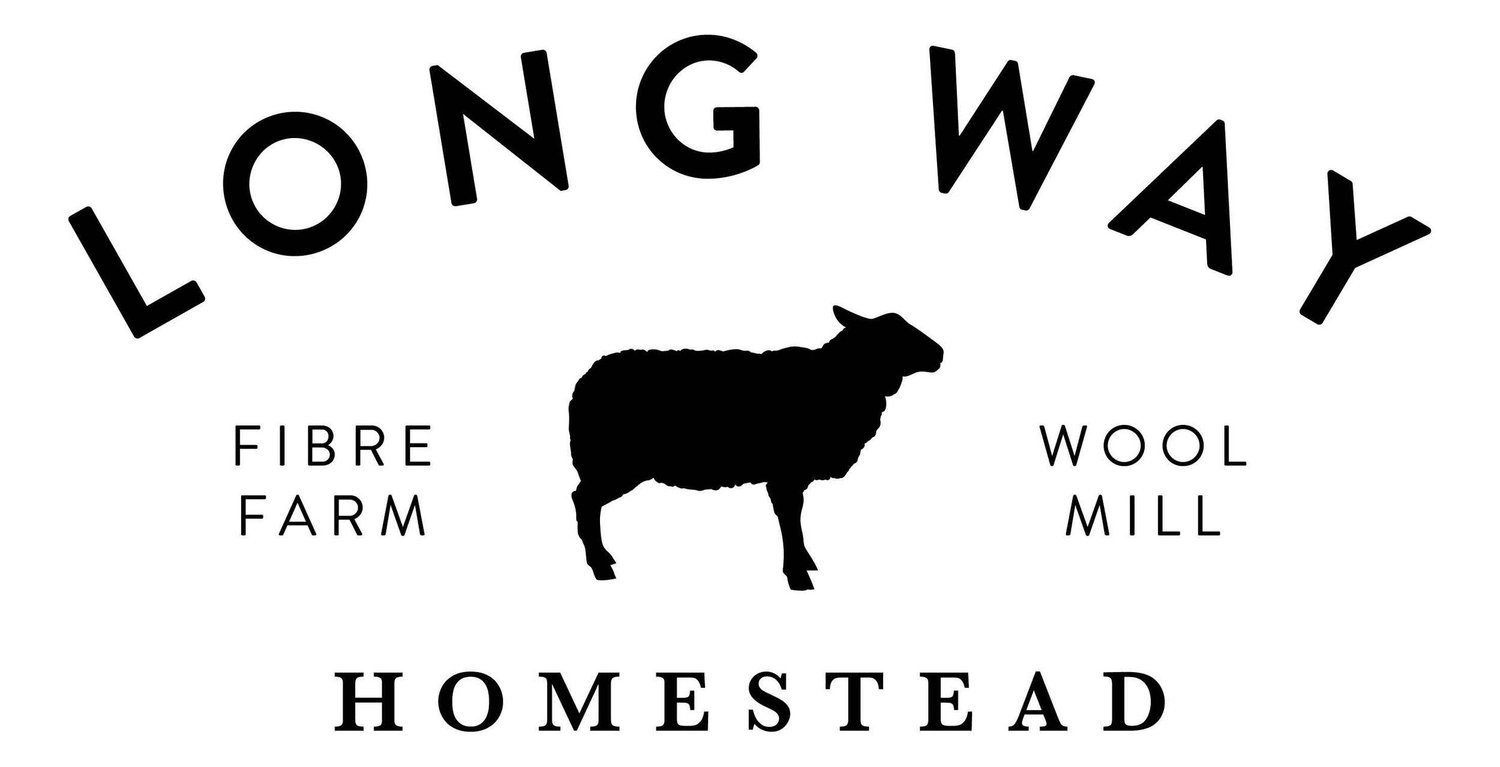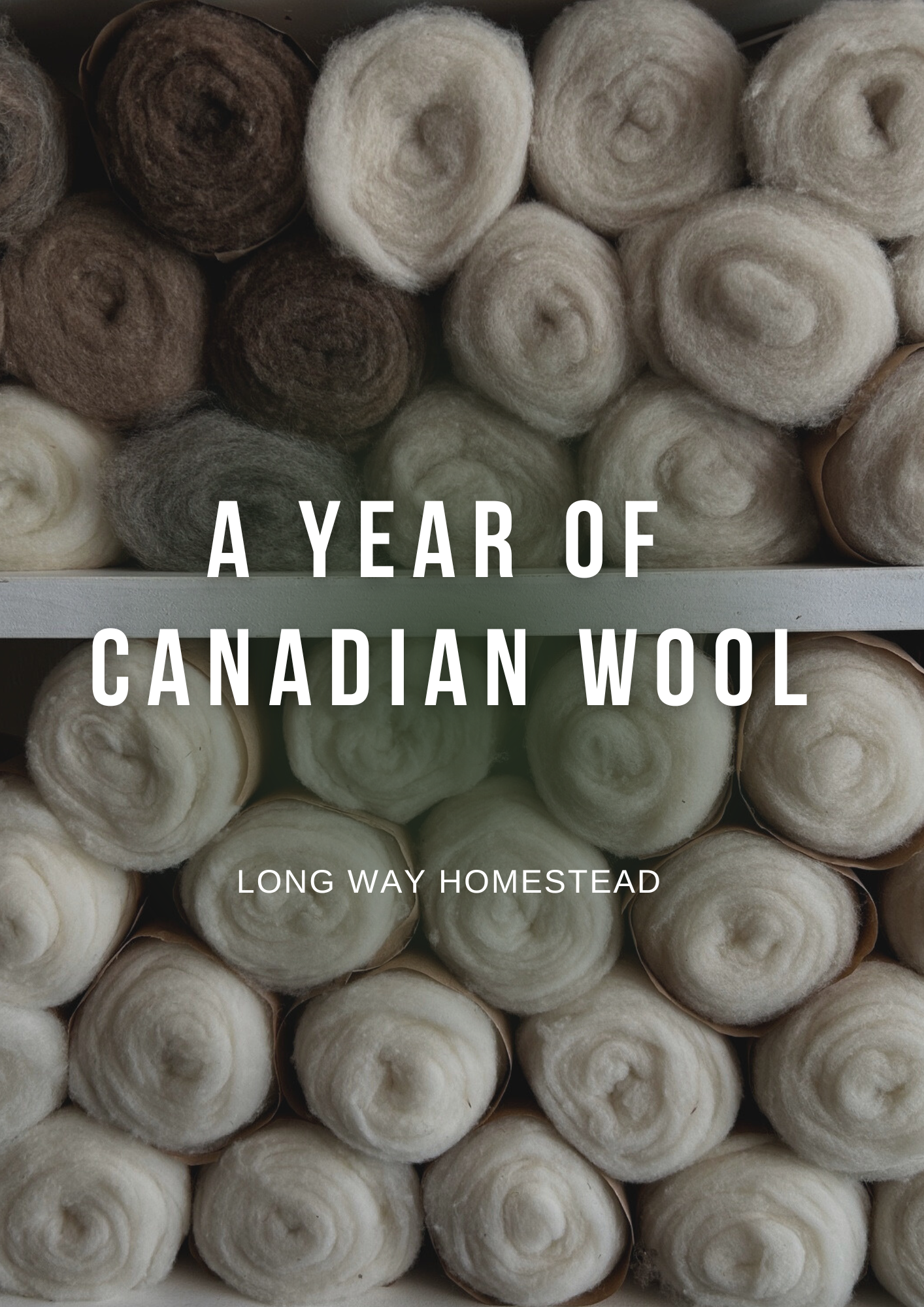Family owned and operated fibre farm and wool mill in Eastern Manitoba, Treaty One Territory, Canada
REGENERATIVE
We prioritize the long-term effects of our mill and farming on our landbase. We see the role that grazing animals can play in sequestering carbon from the atmosphere and utilize holistic management practices on our farm and in our mill.
LOCAL FIBRE PRODUCTION
We focus on processing fibre from local farmers, supporting producers, makers, and dyers within our own fibreshed. We are working to build resiliency in our small and medium scale Canadian fibre economy through advocacy, research and education.
BREED SPECIFIC
We produce small batches of breed specific yarn that highlights the unique qualities and colour of individual fibre animals. This helps to protect rare breeds of sheep, and supports businesses by making processing accessible to small-scale fibre farmers.
Whether you are brand new to Canadian wool or you’ve been working with it for years this new online course offers insights, research and activities that will guide you through your own exploration of Canadian wool. Each month a new topic will be explored with new content, tutorials and a mix of video, audio, pdf's and other tools to guide you through the various aspects of Canadian wool. Enjoy 12 months of deep dive into the world of Canadian Wool
Looking for an engaging wool presentation for your LYS,
fibre arts retreat, guild or knit show?
I love teaching and educating about the Canadian wool industry, sheep and fibreshed. In 2023 I spoke at over 35 events across N. America (guilds, knitting groups, wool shows, Local Yarn Stores and knitting retreats.)
Check out the full line up of workshops and presentations that can be booked for your yarn store, fibre arts event or group, in person or on-line. Check it out here.
Please email us at info@longwayhomestead.com for pricing and scheduling. I can also adjust my lectures to meet the needs of your specific organization/event.
Damon Surzyshyn put together this video that talks a little about our story!











![We will see you all tomorrow SUNDAY, July 18th from 10am - 5pm here and a mile away at @fermefiolafarm for Fibre & Farm Market! #localfibre #pembinafibreshed [covid protocols, accessibility information, and vendor list in stories highlight]](https://images.squarespace-cdn.com/content/v1/56f6f5be2eeb8183c2c2737e/1626583583925-5BROMIENQDRNPTGOQBZQ/image-asset.jpeg)
